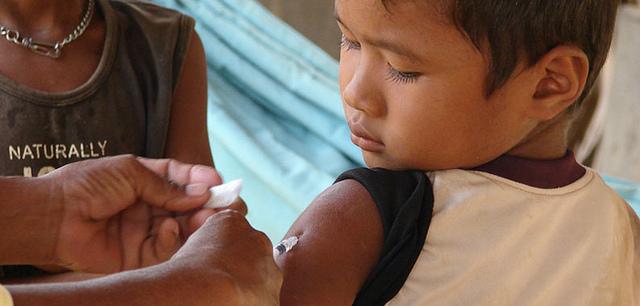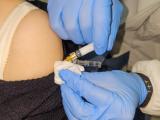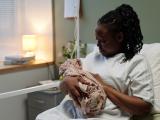A review of 18 measles studies and 32 pertussis studies published last week in the Journal of the American Medical Association (JAMA) found that parents who intentionally do not have their children vaccinated contribute to disease outbreaks, though other factors are likely at work, as well.
Measles and pertussis (whooping cough), both highly contagious, are on the rise in the United States. Measles was declared eradicated from the United States in 2000 but has recently resurged, with 667 cases in 2014 and 189 in 2015, according to the Centers for Disease Control and Prevention (CDC). Pertussis dropped to fewer than 2,000 US cases for several years in the 1970s and '80s before roaring back to more than 48,000 cases in 2012, a 60-year high, according to the CDC.
The JAMA meta-analysis, conducted by a team led by Emory University researchers, involved 1,416 measles cases and 10,609 pertussis cases across the 50 studies.
Exemptions from measles vaccination
The experts looked at measles outbreaks from 2000 until November 30, 2015, including an outbreak linked to Disneyland in 2014 and 2015 that involved 111 cases.
Of the 1,416 cases analyzed, 56.8% had no vaccination history, the authors found. They also noted that, of the 970 measles cases with detailed vaccination data, 574 patients (59.2%) were unvaccinated despite being vaccine eligible, and 405 of those (41.8% of the total) had nonmedical exemptions—for religious or philosophical reasons, as opposed to medical reasons.
Those rates compare with 14.1% of outbreak case-patients having received a vaccine, with the remaining cases being ambiguous.
One of the 18 studies that the researchers analyzed claimed that children who are not fully vaccinated are 35 times more likely to become infected with measles.
In a subset of the studies that the authors looked at, in seven reports cataloguing 574 unvaccinated patients, 70.6% had specifically opted out of receiving the vaccine for nonmedical reasons. The authors note, however, "Sometimes it is difficult to distinguish between purely religious or philosophical objections to immunization and safety concerns about vaccines that manifest as nonmedical objections" for all diseases, not just measles.
Pertussis opt-outs
For pertussis, the researchers noted that the five largest statewide epidemics quantified among the 32 studies had 24% to 45% rates of unvaccinated or under-vaccinated patients. The team also noted that, in 8 of 12 outbreaks from 9 studies that included detailed vaccination data on unimmunized patients, 59% to 93% of unvaccinated people were intentionally not vaccinated.
However, simply increasing vaccination rates would not solve the pandemic, the authors wrote. "We also found reports of epidemics within populations with high rates of vaccination coverage, illustrating the important contribution of waning immunity to pertussis to disease epidemiology."
The authors also note that better diagnosis of the disease and the switch from whole cellular vaccines to acellular ones could be contributing to increased pertussis cases in recent years.
The researchers said that 7 of the 32 articles back up the possibility of waning vaccine immunity, but because of the varying operational definitions used in the studies, they were not able to investigate the matter further.
As one Colorado study in the meta-analysis that involved cases from 2004 to 2010 said, under-vaccination increases the chance for infection; the Advisory Committee on Immunization Practice recommends seven DTaP (the acellular version of the vaccine) doses throughout childhood and adolescence as well as a booster shot as an adult.
Possible study biases, implications
Although quality assessments were not made of the studies that the authors reviewed, they pointed out that many of the possible biases would skew the results to underestimate the effect that under-vaccination would have on disease outbreak numbers. The information that they found supports the idea that vaccines are being refused too often for nonmedical reasons, but they added that to use that information in policy making requires "clear demonstration that the risks and harms to the child of remaining unimmunized are substantial," as well as a greater clarity and understanding of the consequences.
The authors also noted that to understand there is a problem is one thing, but to figure out why so many people are refusing vaccines in order to change behavior is another.
Both diseases have shown correlation between communities with higher vaccine exemption rates and higher disease prevalence, including those in the population who are vaccinated, according to the investigators.
The JAMA study authors stopped short of giving vaccine policy recommendations, but an accompanying editorial by Matthew Davis, MD, MAPP, of the University of Michigan did not.
Because the study points out that even in areas with stricter exemption laws, people have been requesting and receiving more and more vaccine opt-outs, Davis writes that combining policy with communication campaigns and fostering better dialogue with hesitant parents could help increase vaccination acceptance. He also recommends that vaccination research should look at how the timing of vaccine doses could have an effect on waning immunity, and he hopes that eventually vaccine policies will expand to look at adult vaccinations.
Davis says the study's implications are far reaching. He adds that technology, however useful it is in the beginning, must improve with the times, and furthermore, it must be accepted to do the good it was intended to do.
Phadke VK, Bednarczyk RA, Salmon DA, et al. Association between vaccine refusal and vaccine-preventable diseases in the United States: a review of measles and pertussis. JAMA 2016 Mar 15;315(11):1149-58 [Full text]
Davis MM. Toward high-reliability vaccination efforts in the United States. (Editorial) JAMA 2016 Mar 15;315(11):1115-7 [Extract]



















